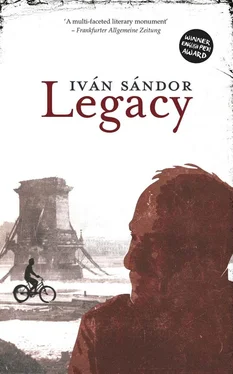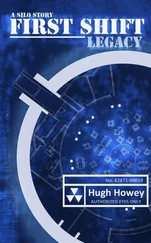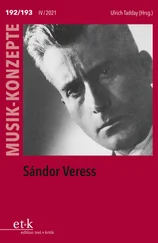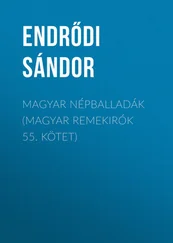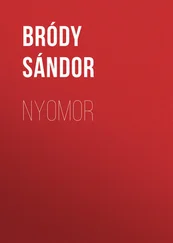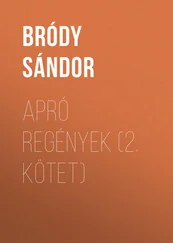The entrance to the next house is wide, and there are stairs leading in two directions. A man is shouting and directing women and children down towards the cellar while men stay there, sitting on the steps, so we edge our way in among them.
I want to stay near the exit.
Vera is freezing. Wiggle your toes! She can’t, she replies. Everyone there is a stranger to one another, which is to our advantage as we do not seem conspicuous. Bomb blasts can be heard in the distance; the sound of ack-ack guns is closer. A woman is sitting next to me and asks where we live. Zugló, I say. Have the Russians got there yet? No, I say, not so far. I spot behind a column the man who followed us from Király Street. It’s not a fur coat he s wearing but a hunting coat; his peaked cap is not an army one. He is setting off towards the man directing the flow of people, who is presumably the warden for the building.
Vera cannot grasp why I am pulling her after me, and I don’t have time to explain. I shoulder two men out of the way, which prompts one of them to take my mother’s name in vain. Once we reach the street I don’t look back, and we reach Mussolini Square. The air-raid alarm is still sounding; others are hurrying, some running. There are two ack-ack batteries in the square. Commands are bellowed. There are some people gawping from the pavement as the cannons attempt to keep track of the aircraft as they swoop down and unload their bombs over the Western Railway Terminus not far away. We turn into Andrássy Avenue.
A woman is lying on the ground in front of one of the houses. She seems to have slipped in the snow, so we help her to her feet. Vera hands her back her shopping-bag, which contains about half a kilogram of potatoes and a few apples. We lead her under the nearest doorway. She expresses her gratitude as we take shelter next to her. We wait there until the siren sounds the all-clear, and the woman takes her leave. We are standing at the corner of Eötvös Street; further up and on the other side of the road we can see the Arrow Cross sentries in front of number 60 Andrássy Avenue. We can’t go that way, I say; we can’t go back in the direction we came from so let’s head for Western Railway Terminus. Perhaps as an alternative we could go down the continuation of Eötvös Street to the right, but in two blocks that would bring us back to Király Street. With one hand Vera sweeps the snow off a bench at the corner and sits down. I tell her to get up, it’s cold. Which way shall we go? I don’t know, but get up, please. No, I shan’t, she says and says it quietly. I’m not getting up, and I’m not going anywhere. I sit down beside her.
The bench which is standing on the pedestrian precinct in front of the post office on Eötvös Street nowadays cannot be the old bench. I go down to the Király Street end of Eötvös Street. Last year I bought a black hat in the corner shop, and I said to the hatter that for my fourteenth birthday I was given a brown boys’ hat with a green band on it, since when I have never had one. They haven’t made a line of boys’ hats for a long time, he said.
In Király Street I try to find the exact spot from which I last glimpsed Judy’s face, which would mean that she had accomplished her task inasmuch as it is the business of the dead to find their way to those who have remained alive.
The tiny place that Vera and I occupy on the bench is ours. It is snowing more heavily. I stand up and ask, but she does not move, so I start off. Yet even now she will not come, so I stop.
I ought to pin down the date. I try to find points of reference. Mother has kept three of my letters, and I put in a call to Mádi in Paris. I try to match up dates. Where can the lost traces be leading? Back to Amerikai Road? Francia Road? Back to Mihály Munkácsy Street?
One of the letters bears a date from six days later.
We could not have sat on the bench on Andrássy Avenue for six days.
I go back to Vera and give her a hug. We set off.
We hear a burst of submachine-gun fire from number 60 Andrássy Avenue. An ack-ack gun behind us barks again; search lights sweep the sky.
On 8 December Soviet troops reach the town of Vác on the Danube bend, some thirty kilometres to the north. By 9 December the north-eastern perimeter of Pest is being pounded. Father Kun’s order to shoot a group who have been made to strip naked on the Pest bank of the Danube: ‘In Christ’ name — Fire!’ Captain Imre Morlin of the Artillery deploys the fourteen — eighteen-year-old military cadets who have been placed under his command, and they are joined by young men from the Ludovika Military Academy: ‘In accordance with your military-school training, every man will fight to the last bullet!’ Plenipotentiary Veesenmayer receives instructions from Berlin that all possible assistance should be given to facilitate the harshest procedures against the Jews. On 12 December those possessing Swiss or Swedish safe-conduct letters who have been detained in custody up until then are set off in columns marching west towards Komárom. Lieutenant József Klima’s unit breaks into the Divine Love Girls’ Institution. The women and young girls who had been hiding there are loaded on to trucks waiting at the Buda foot of the cog-wheel railway, taken over the river to the Arrow Cross building in Újpest, then from there to the bank of the Danube where they are shot. On 14 December Anton Kilchmann, having left Carl Lutz as the sole Swiss representative, arrives in Berne. During a subsequent administrative juridical investigation on 31 August 1945 he rebukes Chief Justice Otto Kehrli that on his arrival there was nobody to debrief him; the Ministry of Foreign Affairs was completely indifferent to what was happening to its officials in Budapest. From 15 December onwards Arrow Cross patrols constantly circle Carl Lutz’s office. That same day Pioneer Battalion 751 of the German regular army is deployed in battle.
I search for the words to help me to fill that void of six days in which I have lost my tracks. They may be somewhere in the blind spots of my memory but, sad to say, untraceable.
Vera never called me to account for leaving Edo and Judy on their own. She knew that before she could she would have had to call herself to account.
Vera was then three months past her twelfth birthday.
Dearest Father and Mother,
We are well! Misi was here and told us you are thinking we ought to gain admission to the Red Cross, which was granted an extension until the 22nd. We would rather stay where we are, as we don’t want to have to plan any more escapes, seeing that it’s already the 14th. If you are able, speak to Dr Temesváry, maybe we can join you at the hospital. Ask what the position is with Mihály Munkácsy Street! Don’t worry, we’re fine; we have food to eat. Misi said that you should not complete your registration forms but wait, because perhaps we can write in our actual home address soon! Write to say whether I should wait or should I send those too with Jolán Bors, as I’m right now expecting her to return. It would be good if she were to bring our registration forms; if you can get hold of papers without fail!!! We will be waiting here!!! For the time being we will not go there.
All my kisses.
Where could Misi have gone on 14 December? Where was it that we would rather have stayed than again having to avoid being herded into the ghetto? Did Misi bring registration forms for us? Then why was I asking to be sent some with Jolán Bors? It is quite certain, therefore, that we did not go back to Mihály Munkácsy Street.
I wrote that letter on a typewriter. Fourteen lines. Signed at the bottom with my name and Vera’s in ink. The typewriter lettering is recognizably that of the Remington in the workshop; that was also the only place there would have been any ink. Also the letter is on printed stationery bearing the letterhead MANUFACTURER OF STATIONERY AND SPECIALITY PAPER BAGS, with the address and telephone number: Budapest XIV, 41 Francia Road. Tel.: 297–826.
Читать дальше
